Welcome.
Please visit this January 1st daily thread for the rules of the road,
which are few but important.
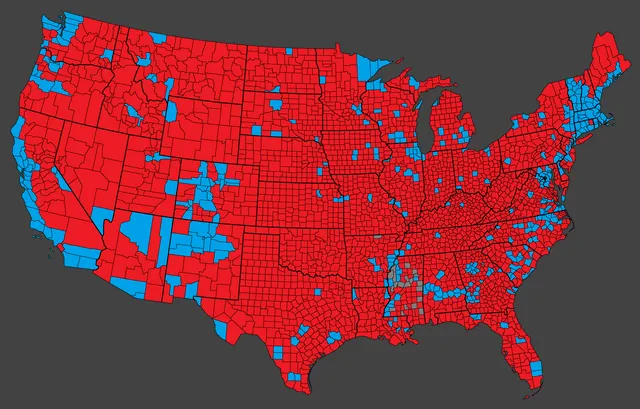
Let us Never Forget: our VOTES gave the Trump Administration a Mandate to FIX IT ALL.
Do not submit again to a yoke of slavery.
For freedom Christ has set us free. Stand firm, therefore,
and do not submit again to a yoke of slavery. — Galatians 5:1
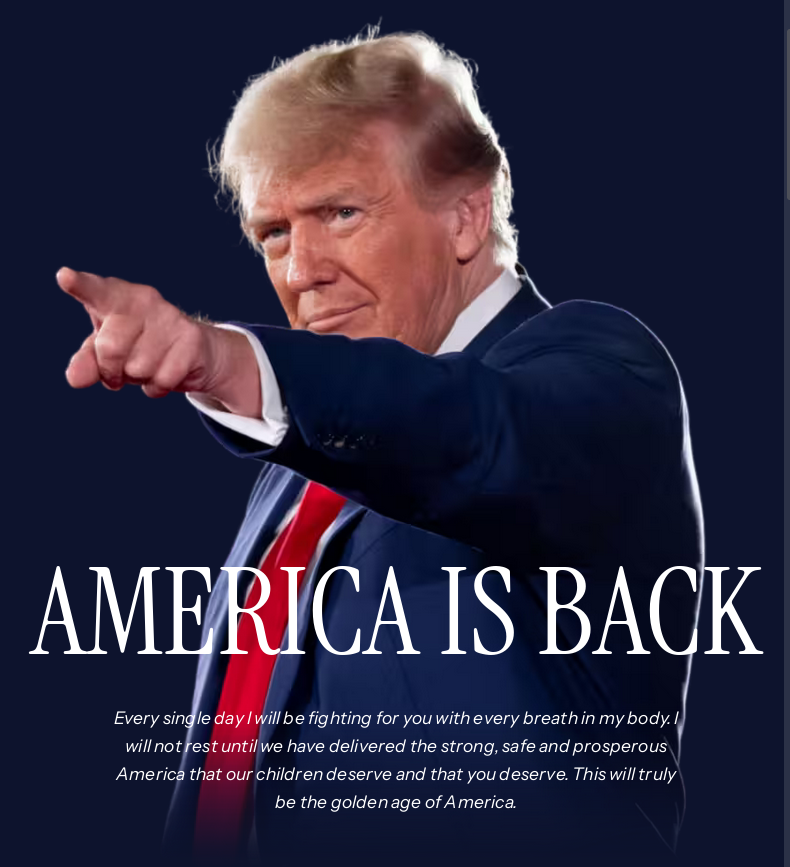
We got our miracle.
America is back.
Let us dedicate ourselves to the cleansing, healing, and rebuilding of our beautiful nation.
God will guide us.
Prayers and thanks to God for President Donald J. Trump.
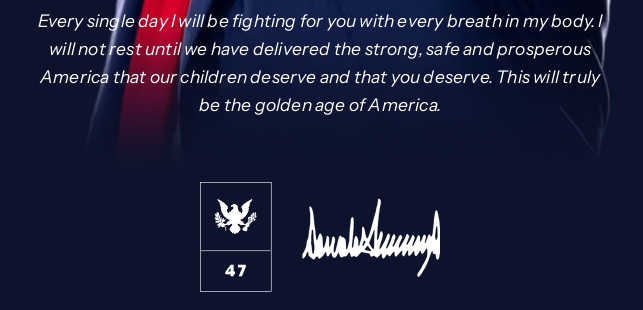
Can We Watch?
The ability to watch the process of an election–from beginning to end–MUST be intentionally designed into the process. Otherwise, it’s just as prone to sleight-of-hand as a magician’s trick.
As Bev Harris (BlackBoxVoting.org) explained, we want to validate who can vote, who did vote, what each voter marked on each ballot, and how all elections materials are tracked and secured.
Provision for observers at each stage of the process is part of what gives legitimacy to our elections.
Election Observers, the Theory.
In theory, at every step of the process, open and transparent access for observers from each interested party should be expected and provided for. Not just when it’s convenient for the elections officials and their staff.
Any resistance to making provision for observers MUST be considered as suspicious at best, possibly a sign of guilt, and always an indication of maladministration of the election process.
You may remember poll workers taping up sheets of cardboard to block the view of the poll during the 2020 elections. I’ve heard reports of similar behavior in other places since then. Didn’t some group have a way to send on the spot reports to them when these types of things were happening during the 2024 election?
Voter Rolls.
If voter rolls are not freely visible to every citizen, if there is not an audit trail for how rolls change over time, if list maintenance procedures are not transparent, then there is room for hidden fraud. You might just want to check what level of access and transparency your state provides for your voter rolls.
“Maintaining an accurate voter registration list is essential to protecting election integrity. Keeping voter registration lists up to date is a continual process that includes adding new eligible voters, updating voter registration information when a voter moves and removing ineligible voters. The process of adding, updating and removing voters is referred to as list maintenance.”
— Election Assistance Commission
As mundane as keeping a list up to date would seem, apparently even a lowly voter roll can aid and abet rigging an election. Or elections. Lots of elections.
As documented by Andrew Paquette in the paper, “The Caesar cipher and stacking the deck in New York State voter rolls” someone was clever enough to encode into the rolls a veritable army of zombie voters to be conjured up when needed to tip the scales for an election.
From the abstract:
Voters in New York State are identified by two identification numbers. This study has discovered strong evidence that both numbers have been algorithmically manipulated to produce steganographically concealed record attribute information. One of the several algorithms discovered has been solved. It first utilizes a mechanism nearly identical to the simple ‘Caesar Cipher’ to change the order of a group of ID numbers. Then, it interlaces them the way a deck of cards is arranged to create a ‘stacked deck’. The algorithmic modifications create hidden structure within voter ID numbers. The structure can be used to covertly tag fraudulent records for later use.
Election Observers, state-by-state.
The National Conference of State Legislatures (NCSL) provides a brief, “Policies for Election Observers.” You can find just about everything you would want to know about your own state’s policies at this link.
Political parties, candidates, citizen groups and independent organizations may deploy observers or watchers to witness election processes in the U.S. Generally, the purpose for these observers is to provide a layer of protection or transparency and to learn from and improve processes, which vary considerably by state. This webpage covers relevant laws and practices for multiple types of election observers nationwide.
In reviewing this brief, I didn’t see anything about allowing observers or insight into mail-in ballot drop boxes, or handling by the USPS. Seems like a problem. As President Trump reminds us all the time, mail-in ballots are “not good.”
Recent Changes to State Laws.
I found the list of recent legislative actions regarding election observers to be an interesting way to get a sampler of what states are focused on these days. Here they are:
Modifications to who can be an election observer of any kind:
- South Dakota HB 1182 (2024) allows members of the public to observe voting and counting processes at polling places and requires that polling places be arranged so that poll watchers can see and hear what is going on.
- North Dakota SB 2292 (2023) clarifies that any individual beside a candidate on the ballot may be an election observer if they inform the election inspector of their intent to serve.
- Louisiana SB 74 (2022) clarifies that those who require assistance with voting may serve as poll watchers.
- Oklahoma HB 3321 (2022) requires poll watchers to serve in person and not via electronic devices.
- Utah HB 387 (2022) Permits preregistered voters (those who are under 18 years old) to serve as poll watchers, permits poll watchers to observe the ballot curing process and requires ballot adjudication in larger cities to be projected on a screen large enough to be viewed by watchers.
- Arizona SB 1835 (2021) requires poll watchers to be registered voters in the state.
- Texas SB 1 (2021) requires a training program for poll watchers and requires watchers to present a certificate of completion when reporting for observation. The law adds to the list of processes that poll watchers can observe all activities relating to closing a polling place, ballot signature verification, ballot curing and voter assistance efforts. SB 1 also requires poll watchers to take an oath, establishes a penalty for election officials who knowingly refuse to accept a valid certificate for observation, permits election officials to call law enforcement for the removal of a poll watcher who is in violation of the law, and establishes legal remedies for watchers who believe they were unlawfully prevented from observing election processes.
- Nebraska LB 1055 (2020) established the role of a poll watcher as either a registered voter of the state or an individual representing a state-based, national or international election monitoring organization. The bill went into effect after the November 2020 elections.
- New York AB 1525 (2019) permitted any political committee supporting or proposing a ballot proposal to have watchers in any general, special, town or village election and any party committee and any candidate on the ballot to have three watchers for each election district in a primary election.
- Utah SB 94 (2018) consolidated multiple terms for poll watcher (voting poll watchers, counting poll watchers and inspecting poll watchers) to the generic term “poll watcher” and permitted poll watchers to observe various aspects of the process.
- Arkansas HB 2138 (2017) prohibited a member of the state or county board of election commissioners from serving as a poll watcher.
- California AB 2021 (2016) clarified that international election observers may have uniform and nondiscriminatory access to all stages of the election process that are open to the public.
- Tennessee SB 1945 (2016) prohibited the appointment of a candidate’s spouse to serve as an election observer.
- Montana HB 529 (2015) prohibited a candidate from serving as a poll watcher.
- New York AB 5075 (2014) prohibited candidates for public office in a given election from acting as poll watchers.
- Alaska HB 104 (2013) required that poll watchers be U.S. citizens.
Modifications to the process of becoming an observer:
- Arkansas HB 1457 (2023) establishes a poll watcher bill of rights, requires poll watchers to be qualified electors of the state and receive training before an election.
- New Mexico SB 180 (2023) requires poll watchers to attend training before accepting appointment.
- Nebraska LB 1055 (2020) established an accreditation process for observers. The bill went into effect after the November 2020 elections.
- Arizona SB 1054 (2019) increased the amount of time before an election for nonpartisan observers to apply to observe at a counting center. Only three persons or groups may observe activities at the counting center and are chosen by lot from those who apply.
- Louisiana HB 563 (2019) required that a list of watchers be filed with the clerk of the court in each parish where a candidate will have watchers if the office is in more than one parish.
- New Mexico HB 407 (2019) amended the definition of watchers to include an election-related organization or any group of three candidates for election in a statewide election and outlines which aspects of the process may be observed.
- Mississippi HB 467 (2017) added a credentialing process and code of conduct for partisan poll watchers.
- Virginia HB 1333 (2015) specified that the state or district chairman may designate authorized representatives of political parties if the county or city chairman is unavailable to do so.
- Wisconsin AB 202 (2014) required all authorized observers to sign in at the polling place and provided for observation areas of not less than 3 feet or more than 8 feet from the voter check-in table.
- Arkansas HB 1551 (2013) required the state board of elections to certify at least one state election monitor for each congressional district, and HB 1551 (2013) required training for certified state election monitors.
- Texas SB 160 (2013) required election officials to provide poll watchers with identification to be displayed by the watcher at the polling place.
Modifications to which aspects of the election process may be observed:
- Colorado SB 276 (2023) establishes poll watcher guidelines for primary and special elections and prohibits poll watchers from taking photos and recording inside the election office or polling place.
- Montana SB 93 (2021) permits poll watchers to observe at mail ballot deposit locations (drop boxes).
- Texas HB 1128 (2021) clarifies that poll watchers may be present in polling places, at meetings of early voting ballot boards and in central counting stations.
- Arkansas SB 488 (2021) allows poll watchers to inspect voter statements and ballots during an election, even though these documents are protected under the state’s public records law.
- Florida SB 90 (2021) requires poll watchers to wear identification badges while observing and allows each political party and each candidate to have one watcher with viewing access to ballot signature verification.
- Hawaii HB 1248 (2019) enacted mail voting across all counties for all elections and included a section allowing poll watchers to be present at voter service centers.
- Maryland SB 5 (2015) permitted authorized partisan and nonpartisan observers, and any others who wish to be present, to observe the canvass process.
- Virginia HB 319/SB 537 (2012) specified that partisan observers may be close enough to the voter check-in table to be able to hear what is being said, but that observation shall not violate the secret vote or otherwise interfere with the election.
Our Turn.
We can’t leave this to others. We can at least try and get informed on what has been found, what has been done about it, and what more needs to be done.
We can make a difference.
And we must make a difference.
If you care about building a lasting and resilient nation, consider yourself on the job.
What would be the 5 bullet points in your status report for this week?
Twitterati, etc.
Andrew Paquette (mentioned above) is a refreshingly creative mind to engage with. His latest substack, “X marks the spot,” about trying to get to X, then Grok, might be an interesting read for those of us still trying to get in the gate. One of the replies also gives more ideas for what to try when wanting to open the door into their walled garden.
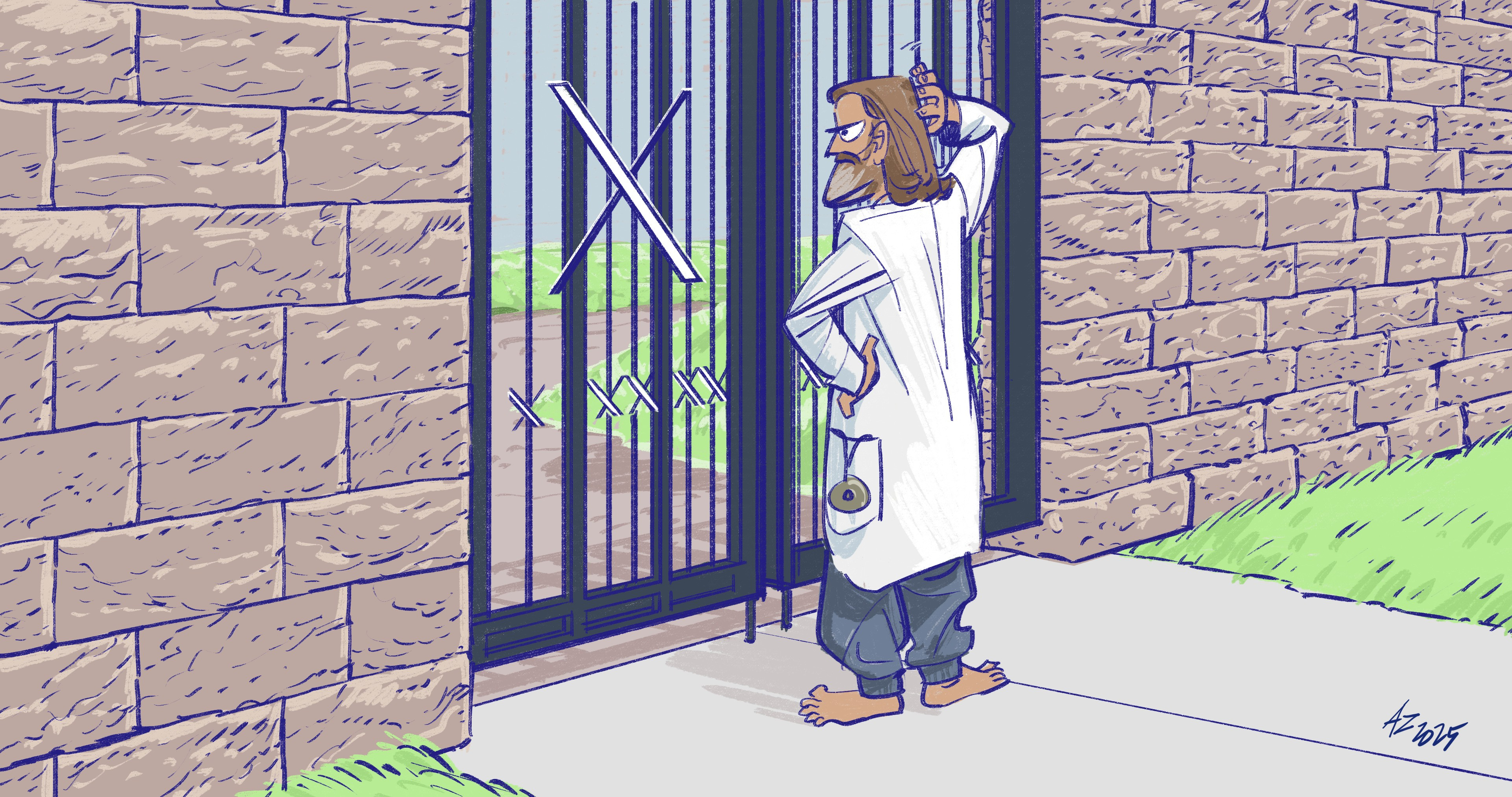
Prayer.
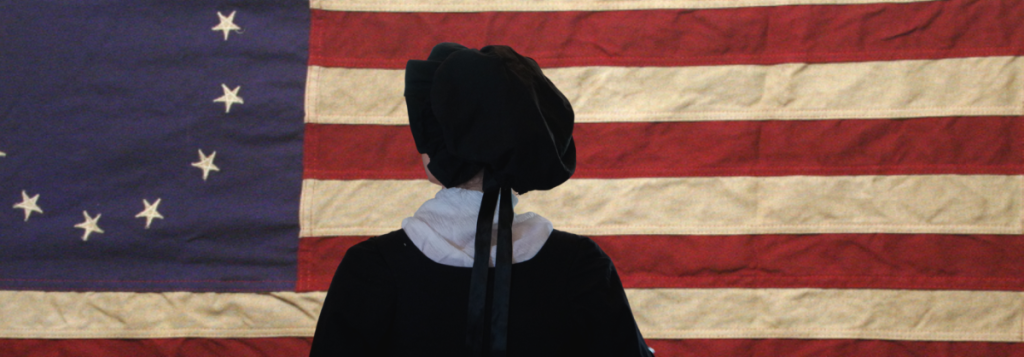
God Bless America,
Land that I love.
Stand beside her, and guide her
Thru the night with a light from above.
From the mountains, to the prairies,
To the oceans, white with foam
God bless America, My home sweet home.